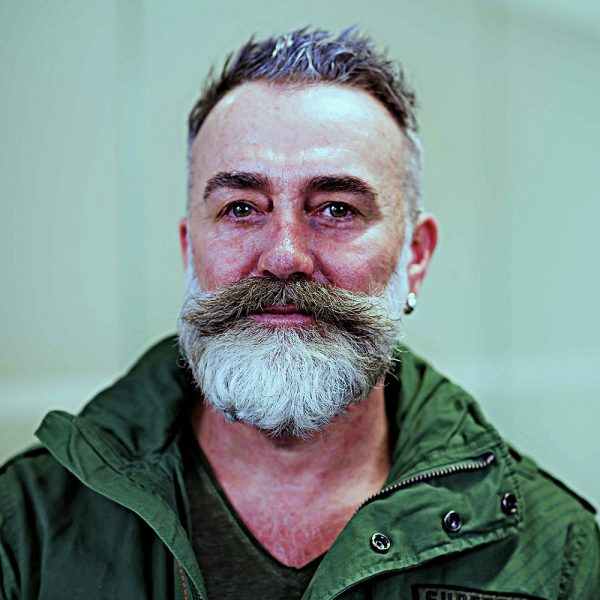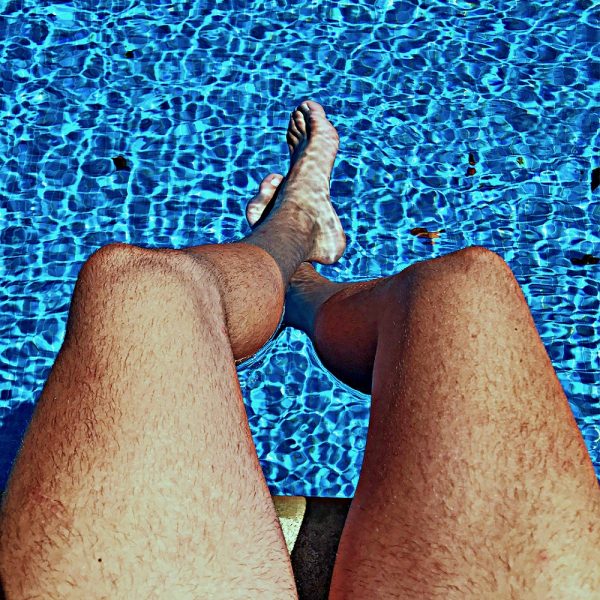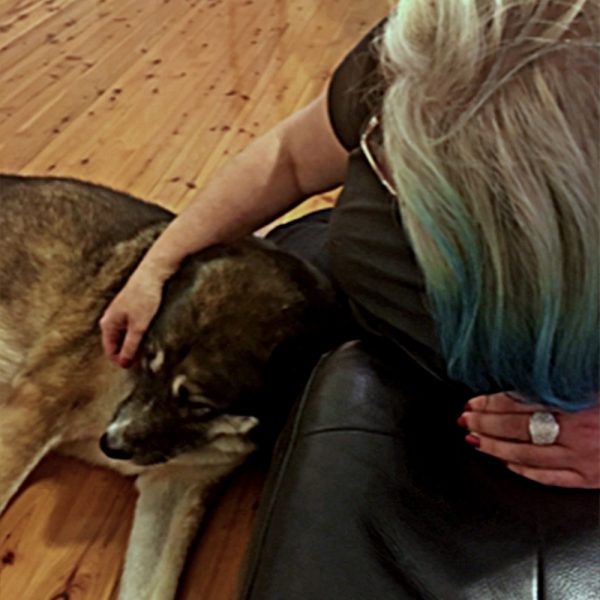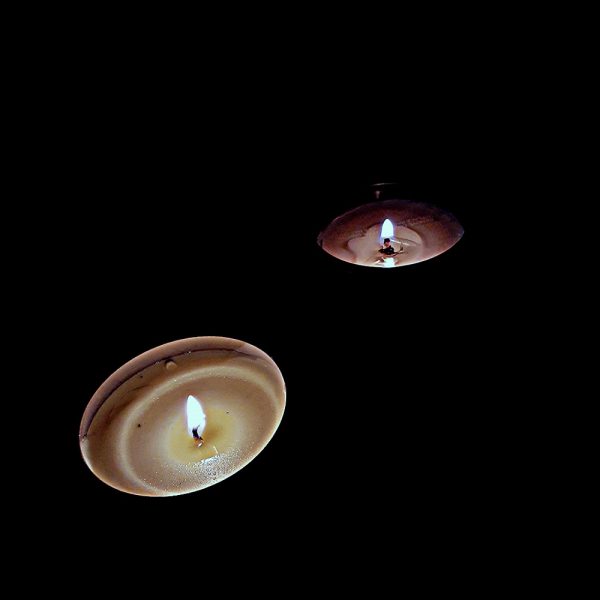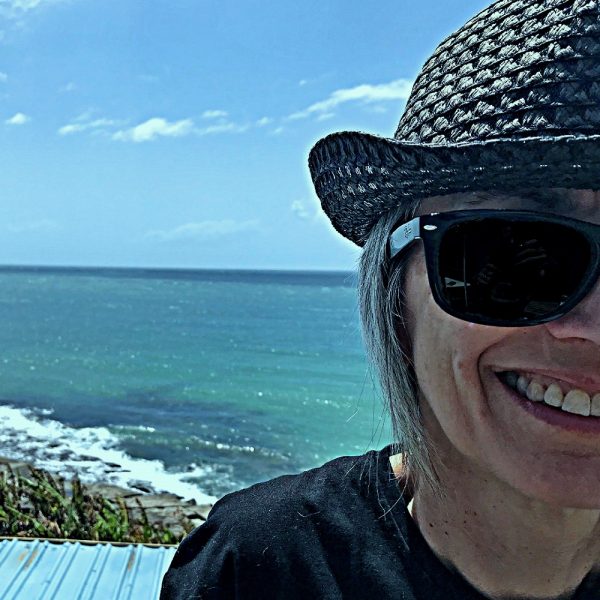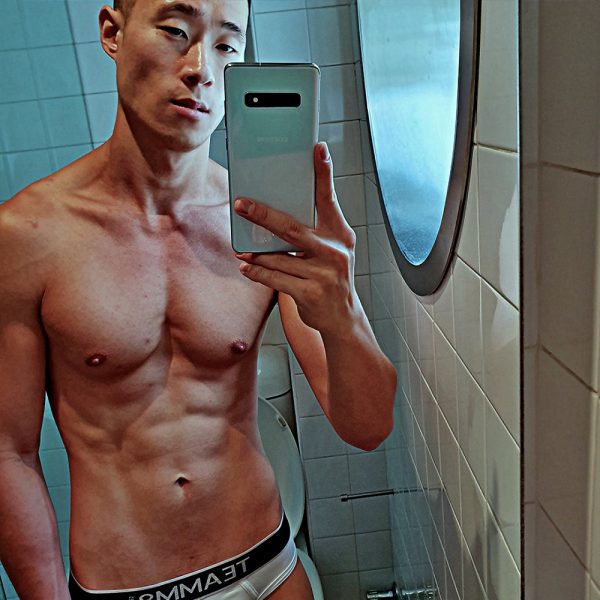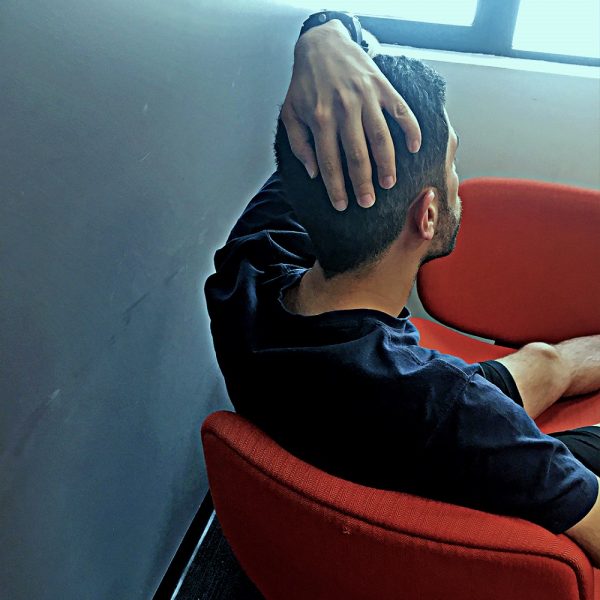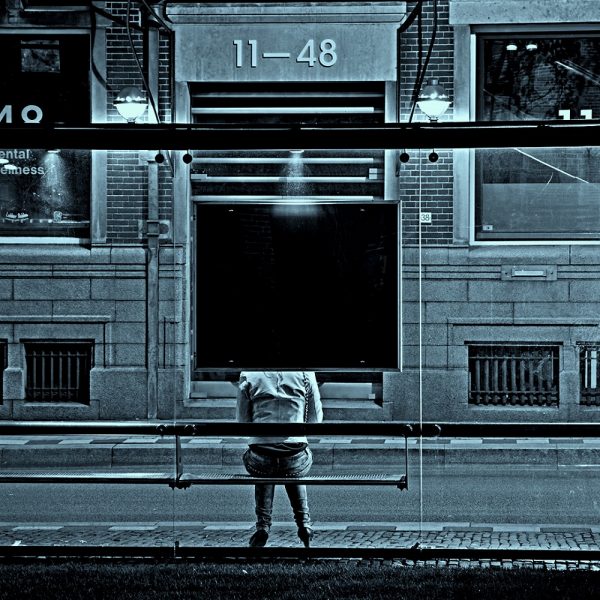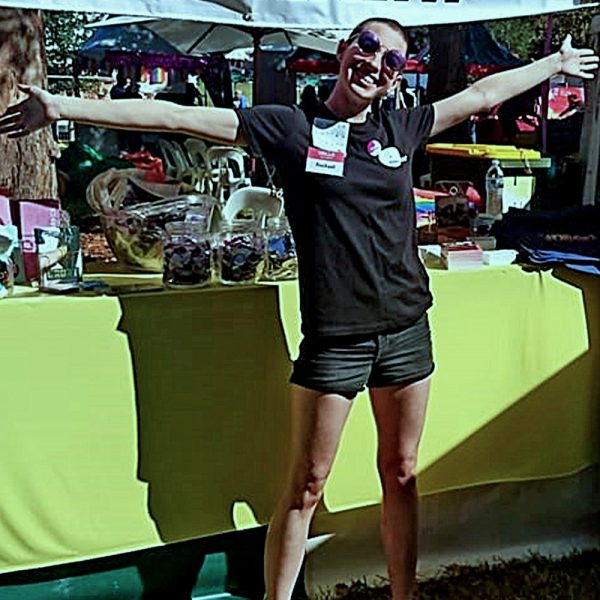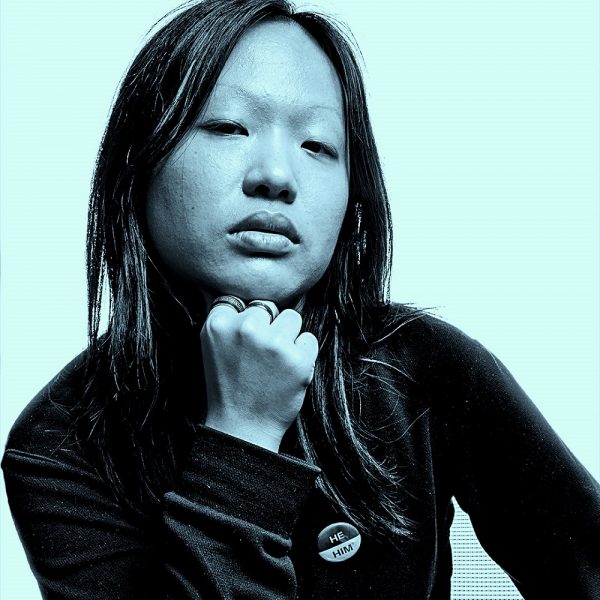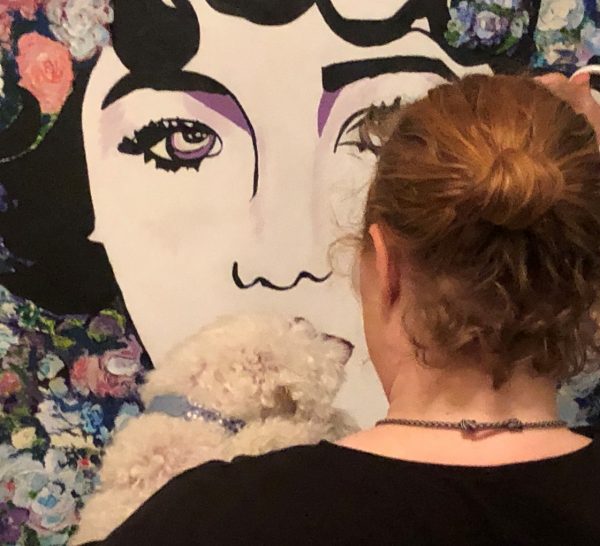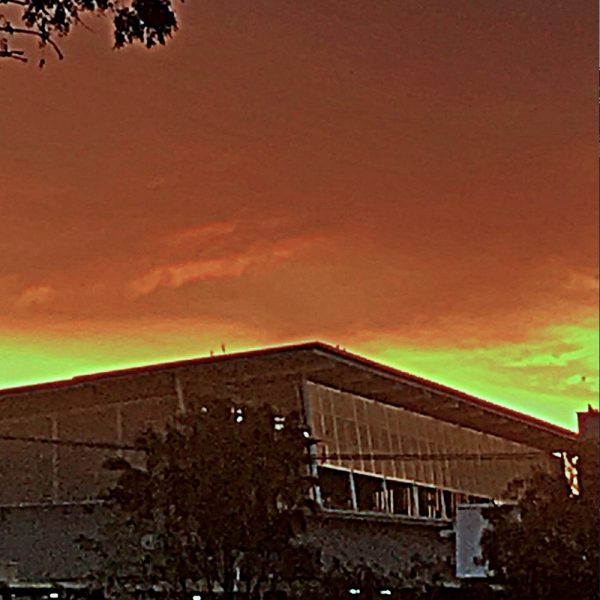Our Stories
CONTENT WARNING: The contents of this post includes personal stories of sexual assault and intimate partner and family violence
While we know that globally the majority of violence is perpetrated by heterosexual cisgender men against their heterosexual cisgender female partners, sexual assault, intimate partner and family violence also affects sexuality and gender diverse communities. Evidence indicates that sexuality and/or gender diverse people are just as likely as cisgender heterosexual women, if not more so, to be victims of intimate partner violence.
The drivers of violence against people in the LGBTQ+ community are also a form of gender-based violence, caused by heteronormativity, heterosexism, cisgenderism and rigid gender norms.
What does that all mean?
Heteronormativity: The perspective that sees heterosexuality as the only, preferred or “normal” sexuality.
Heterosexism: Discrimination based on a belief that heterosexual relationships are the norm, “natural” and/or superior to non-heterosexual relationships.
Cisgenderism: A form of prejudice that denies, denigrates, or pathologises non-cisgender identities and expressions.
These social institutions, norms and expectations mean that those individuals and communities who are not heterosexual and whose gender does not fit within the binary are policed and punished. Even in intimate and family relationships, we see discrimination playing out in situations where people are targeted, punished and abused by those they love for not fitting into society’s “norms”.
The purpose of sharing these stories is to encourage people from our communities to talk about abuse in our relationships and listen to the stories of others.
If you have experienced intimate partner, family or sexual violence and you need help, please see our Getting Help page.
If you know or suspect that someone in your life is in an abusive relationship, and you want to know what you can do, check out our Friends and Family Toolkit.
True Short Stories
Scott
My situation showed me that it can happen to anyone, regardless of gender, sexuality or race. The myth that abusive relationships only happen between men and women is wrong. My partner was another gay man who said he loved me.
I never imagined that I would be subjected to emotional, mental, financial and physical violence in a gay relationship. The first time he became violent, I believed him when he said it would never happen again, but of course, it did. Over time he became more controlling, manipulative and even more violent. The power imbalance made it increasingly difficult to escape and I often feared for my life. My self-esteem and confidence were shattered, but I survived and eventually found the strength to leave.
Today, I am able to make better decisions about who I allow to occupy my intimate space. I know that abuse does not discriminate and that it could be happening to someone in our LGBTQ+ community right now, while you are reading this. I think we all need to become more involved in saying “No to Abuse” in our community.
Olive
My journey of embracing my queerness has been fraught with constant dismissals. Heteronormativity and heterosexism were the norm in my life. I conformed to everyone’s expectations, including my own, and as a result, I hardly knew myself. I was mentally and emotionally exhausted, so I moved to a more urban area. I discovered new parts of myself and embraced my authentic queerness for the first time.
Unfortunately, my newfound confidence had a short lifespan, when violently faced with heterosexism again. My female friend and I decided to go to a comedy night to release some tension. We are not romantically or sexually interested in one another, but this does not stop us from being physically affectionate in public. My friend made friendly conversation with a seemingly lovely guy near us, eventually leading to flirting. I was oblivious to the extent of flirting between them, even though I was cuddled against my friend. Post-show, we headed back to my place, unfortunately, with the guy tagging along. Despite my initial reluctance to let him inside my apartment and then my bedroom, I felt rude declining.
He pressured my friend and I to kiss, ultimately to fulfil his threesome fantasy. My friend left feeling uneasy about the whole ordeal, he strategically took this opportunity to make a move. My body froze, but my mind was kicking and screaming in sheer panic. I told him repeatedly I was gay, hurling those words back at him when he pursued. He responded with a flair of cockiness and arrogance, repeatedly stating, “I know you want to kiss me”. I do not know if he did not care or just failed to believe me. Whatever his perspective was, it resulted in the familiar sharp feeling of someone rejecting and violating my identity. He was not interested in my actual identity, it only mattered that I fulfilled his perception of my identity for his own desire. He continued assaulting me, touching more private areas. I escaped by claiming I needed to use the bathroom. Apparently, that was more believable than being queer. I firmly believe if I did not use that escape method, he would have continued regardless of my lack of interest.
My story is one of many spoken and much more unspoken. No one can ever define your identity. Violence may try to silence identity, but it can never destroy it. Only you can define your identity.
Daniel
“Life is only a reflection of what we allow ourselves to see.”
Abuse within a relationship comes in many forms and presents itself in ways that may not be visible to even yourself at first glance, yet alone your closest friends.
Gender plays a huge role in all aspects of domestic abuse, men are not allowed to cry, show or feel emotions, feel weak or ask for help.
Having been in the front line of both the physical and emotional abuse in a relationship, you begin to question your worth and ask yourself: “How did I get myself into this situation?” and “What did I do to deserve this?”
Coming to terms with and understanding the fact that you are in an abusive relationship is the hardest part; approaching your friends and family for help and advice is something that you could only hope for. Being a tall gay man, you are often thrown the phrase “why don’t you just stand up to him?!” or even “just fight back!” But knowing this would only provoke your partner and make your living situation harder in the long run, it becomes the last thing you ever want to consider.
Your friends do not understand as they only see the nice, polite and gentle side of your partner, they do not see what goes on behind closed doors. Often, after leaving social situations with friends, I would feel weak to go home as I knew what awaited, being anxious to step through that door and often afraid. Being in a relationship where you are financially dependent on one another makes the thought of walking away almost a dream – near impossible. How will you survive? How will you pay rent? Being forced to pay for his lifestyle and not having any savings of your own, there’s only so far you can go. You don’t want to be a burden upon your friends, you want to be independent and not admit defeat by returning to your family home. Where do you go? These are all questions you ask yourself on a daily basis.
The emotional turmoil of living with abuse takes a toll on your mental and physical state of mind, but as a man, you are told by society that you’re not able to show the signs of weakness or defeat, that you’re not able to cry or ask for help. Not everyone has the opportunity to remove themselves from a toxic environment. In the end I was lucky and strong enough to walk away.
Friends looked at me with disbelief as I told them what had been happening and for how long. You’re almost looked upon as a liar, based just on your gender and if it is true, why you allowed it to continue for so long.
Gender based domestic abuse is a reality within the LGBTQ+ community and we need to stand by our non-binary siblings who are living with an abusive partner.
Katy
I grew up with physical abuse in the family home, dad would get drunk and he would get violent. I think the first time he belted the fuck out of me was when I was six. I navigated my whole life around that. I wanted to move out of the home really early to get out. I was told the only way I could do that was if I got married. So the first guy who asked, I married. This was before I’d come out to anyone, but I had a lot of queer friends and I’d invite them over to our place. One of the reasons he started to hit me was he told me he needed to snap that out of me. I come from an ethnic background, and he would say that all our family and friends would understand that he was doing it because he loves me and he needs to snap it out of me.
When I finally snapped and went “enough’s enough”, he wouldn’t let me leave the house – he physically blocked me. I’m 5 feet tall, so he was much bigger than me. He put his arm out and blocked me. I said, “move your arm or I’ll chew it off”.
People talk about when someone snaps and they end up killing their abuser, it’s like an out of body experience. It was like that for me. This calm came over me, like “this is what’s going to happen or I’m going to chew it off” – and I bit. When I tasted blood he let go and I ran.
Charlie
The majority of the family violence I experienced was immediately after I came out as a trans man and the six months after. I did not deserve it and neither do any other domestic violence survivors. I nearly died due to family violence and I will do whatever it takes to fight for survivors voices to be heard. I owe it to myself to live my life with as much freedom as possible. Love2all♡
Alice
I’m a cis-female a survivor of intimate partner violence – twice. The first time I was a teen and the perp was cis-male. Many years later it happened again, but this time I was a mature and educated feminist, and the perp was another woman.
One of the biggest differences between these experiences was the support I received. In the first setting, both immediately after I told my story and for many years after, anyone and everyone supported me, from professional support types to friends and general community. I was blown away by the support I got from everyone, and no one ever doubted my story, which really helped me to heal and move on.
The second time occurred many years later. There was less overt physical violence than the first time, but this time I was completely gaslighted and abused emotionally, mentally, sexually and physically. I encountered an almost total lack of support within my own LGBTQ+ community. I tried to debrief with some female friends each who have strong feminist values and experience working in the domestic violence sector who said things like we ”brought out the worst in each other” and “there’s not enough of us to take sides”. One asked if she had hit me, and when I said no, before I could add that I was shoved, bruised and strangled – was told “oh well that’s alright then” and the subject was closed.
I reflect on such comments now, some years later with more understanding of where those comments came from, and am telling my story in the hope that there can be greater dialogue and ways forward for the LGBTQ+ community to better engage and support each other on this issue.
Chanu
Underwear.jpeg does not mean “rape me”.
Gender impacted my experiences of abuse.
Abuse also impacted my experiences of gender.
Sexy, sex and rape. 3 different things.
We should all be able to look and feel sexy without prioritising thoughts of “hope I don’t get raped”.
Abuse or violence shouldn’t make us feel like we should suddenly start being more private or somehow do things to feel more safe.
In courts of law, my name and face were never covered up, so I’m not going to hide or cover up now.
I don’t walk around in public with a pseudonym and a paper bag over my head.
Ending homophobic abuse starts within our LGBTQ+ community. Being a “Masc Top” doesn’t make you a better or stronger gender. Being a bottom-in-denial doesn’t make you more “Masc”. It’s not about “Oh, you were raped? But, aren’t you a bottom?”
Gender shouldn’t impact our experiences of abuse.
Stigma of silence needs to end.
No-bullshit, be open and vulnerable.
Tammy
When I started a relationship with a trans male partner, I was identifying as a dyke woman. I started identifying as queer while we were together, because he would verbally abuse me and accuse me of not seeing him as a “real man”. It was really hard, it had taken me a long time to feel comfortable with my identity and I had to give that up to support his identity. It was just one of the many ways I lost my identity in that relationship. Everything became about him – his needs, his moods, his feelings, his anger, his control over me.
Part of the difficulty I had in seeking help and support after the relationship ended was not wanting to be seen as a heterosexual woman victim of a cisgender man, but I couldn’t face having to try and educate a counsellor about non-cishetero gender and sexuality, and I’d already lost so much of myself through the abuse that I couldn’t face losing my identity in recovering from it as well. There were no services for LGBTQ+ survivors of domestic abuse at the time. Friends had warned me about this person, that he’d been abusive to previous partners. I wish I’d listened. Even though my abuser isolated me from friends during the relationship, they were waiting to pick me up when it ended, and I wouldn’t be here if it weren’t for that.
Sina
In the world of binaries, gender becomes a matter of oppression and pressure. One has to fall in line with any of the masculine and feminine stereotypes. In this world, men are not allowed to cry, feel any pain, have emotions, and certainly, they are not allowed to ask for help.
When I was experiencing my abusive relationship, I tried to reach out to my friends and talk to them about what was going on. Every time the conversation was shut down by bringing up comments like “You are the big guy” or “You are the TOP!” or worse than that, encouraging to reciprocal violence “Why don’t you hit him?” or “You can easily take him down, can’t you?”
The fact was that I couldn’t! I felt weak, put down, unstable, isolated, and alone. He had cornered me to a point that I thought he is my only option and if he is out of my life, I will have no one else. And it wasn’t that he tried hard to isolate me! It was me who needed to talk to other friends about what was happening to me and the conversations were pointless. After a while, I realised that I have nothing other than my abusive relationship that I need to talk about and I couldn’t find someone who understood me.
To be in the cycle of abusive relationships, one definitely needs help, encouragement, and support, and in a world of binary genders, men are not accepted as needing such things. Shame was added to all the feelings that I had. To admit and acknowledge that I was being abused was the first step that I took to get out of that endless cycle.
We need more awareness about “intimate partner abuse” so people know that violence is a choice and it doesn’t discriminate based on our gender.
Liz
It took me more than three years after the fact to realise that it was abuse. Somehow it all stacked up against the truth: you wanted that extra drink, you wanted to kiss him, you wanted to have sex, that he was disgusted by your body but did it anyway meant it couldn’t have been unwanted, that rape happens to other people, but not to you.
The mind works in ways it doesn’t understand. I don’t want it, I don’t want to do this, but please touch me there, please want these parts of me, if you are going to do it, if you are going to ignore what I’m saying. Seeking validation for being desirable while hating every part of myself. Need isn’t as clear cut as consent should be, and I still feel echoes of that confusion in my involuntary actions, or when my mind goes blank and I freak out, apologising, then apologising for apologising.
I also can’t escape it, that secret shame, how we’re told it’s the trauma that makes us women. A so-called feminist gets paid to speak, to challenge me “have you ever walked down a dark street and feared for your life; have you ever felt entirely powerless; have you been used for sex and spat out like I have” and yet my answer is yes, while resenting that it makes me closer to their image of womanhood, as if it were a rigidly definable class of person and not a joyful meaning-expanse.
I never understood the whole “born in the wrong body” narrative, until someone made me feel so wrong I wished I could twist myself out of my skin, shed it and start fresh. Dysphoria asks that I can change, but this made me wish I could disappear. I granted someone else’s touch far too much power, like a memorial, and I refuse to give him that anymore. I am someone who survived, I am someone who is healing, I am a woman – without question or qualifiers – and I am no longer apologising.
Rachael
When I first started coming out as a young bisexual woman, it felt like I was copping it from all sides. On one hand I’d have men over-sexualising it, and on the other, many women were immediately suspicious. They assumed I was too indecisive, too much of a liar, too riddled with diseases, too destined to cheat. I could never be a real queer woman – just a ticking time bomb.
I found a girl I thought I could trust, and what we had was beautiful until it wasn’t. Our fights often didn’t start about me being bi, but they almost always ended up there. Not answering my phone was unacceptable. Talking to men was “flirting”. Watching shows with queer characters was “emotional cheating”. Wearing certain clothes, licking ice cream, or mentioning previous partners made her furious. If I didn’t want to have sex, it was because I was really wanted men – if I was really queer then I should prove it.
At first she would apologise for days when I confronted her, crying about wanting to hurt herself and how she needed help. I thought we were working on things, but I see now that we were in a spiral that would only get worse. I was never hit, but things escalated particularly around sexual consent, and she became someone I was genuinely afraid of. It was the hardest thing I’ve ever done to prioritise my own safety by separating myself, knowing there was a risk of her hurting herself if I did.
I didn’t expect to be so alone in that decision. Friends I’d had for years took her side. Hotlines told me I should just identify as lesbian to make things easier. I was told the abuse wasn’t as real as if a man had done the same thing.
Finally I found support, and even though I live with PTSD, I’m doing a lot better. I go for showers without bringing my phone. I wear what I want and eat ice cream from the cone. I hug my friends. Most importantly, I’m surrounded by people who truly value and respect me, and a partner who loves me in a way this person told me I would never find. I can only hope that she has also learned from this, has gotten help, and is happier and more stable than she was when I knew her.
Max
I’m a queer genderfluid trans man and non-binary person of colour, with a literal chip on my shoulder. And thigh. From being stabbed twice by my ex, a trans man with unresolved anger issues. My ex had unhealthy cisheteronormative expectations of us (with me being in a submissive “female” role), which I think fuelled the abuse. I had PTSD for a year or two, with suicidal thoughts and feelings whenever I remembered the incident, vividly. My blood splattered on my ex’s face. The emotional pain being significantly greater than the physical pain. I now have no patience or tolerance for abuse.
It hurts the most when it comes from your own community. We get enough abuse from the wider community; it is commonly known in the trans community to not read the comments beneath news articles and Facebook posts; the transphobia is horrifying. 45% of Australian respondents to a poll believed that there were only two genders; essentially that non-binary people did not exist. I hear strangers on the street make transphobic comments and jokes. I wish for LGBTQ+ people to be more respectful and supportive of each other, not abuse each other. We need each other more than ever as people and institutions become more vocal about their transphobia. I would also like the transphobia and abuse from the general public to stop.
I’ve not filed a report about the domestic violence to the police because our justice system is not helpful to my situation. My ex does not need jail, he needs professional help. There seems to be a stereotype or misconception out there that all abusers are the same, where they are basically sociopathic and sadistic beings who try to get a kick out of abusing and manipulating people. My ex is not one of these people; he has problems realising when he is angry, knowing what to do about it, and understanding what abuse is. If you google “abuse”, there are only resources for the abused, not the abusers. Abusers may want to stop the abuse as well. We need more awareness and support for abusers.
I’ve been sexually assaulted by a doctor, as a trans person in pursuit of HRT, and I’m one of many. If I was not trans, I would not have been in that situation. Unfortunately, many people do not fully understand consent, including worryingly, health professionals. An agreement is not necessarily consent. I did not know this at the time and only found out years later. I agreed to whatever the endocrinologist wanted because I was afraid of being denied hormones. It was a matter of life or death for me; a power imbalance was definitely there with the doctor being a gatekeeper. I had PTSD for two years from the sexual assault; I had suicidal thoughts and feelings from the recurring thoughts and memories. Consent education should be mandatory for health professionals.
I was denied hormones the following appointment on the basis that I was non-binary. This discrimination was incredibly disheartening. Trans people can be seen by health professionals and the general public alike as curiosities rather than people, which raises the risk of abuse and inappropriate behaviour greatly. I was even misgendered by the doctor. Informed consent and trans health training should be standard, not optional, for doctors.
I tried to seek sexual assault counselling, but was told that if I revealed the doctor’s identity, I’d be forced to make a report against that doctor, for “other people’s safety”. Except I’ve heard other people making reports against the same doctor and the authorities believed that doctor over the reports. That doctor is still practicing and has been sexually assaulting trans people for years now. Reporting can also be an incredibly traumatic process and I do not want to go through that for it to not be believed. Thus, I’ve not been to sexual assault counselling or made a report. I would like mandatory reports by victims to be stopped so that I can seek counselling without fear of being made to do something traumatic.
I wasn’t sure if I was going to survive the trauma from the abuse. But today, it makes me more passionate about ending abuse. Being able to turn my pain and negative experiences into something positive for myself and others, empowers me.
Erin
I believe my relationships have made me who I am and looking back, I wish the bad stuff hadn’t happened. It shouldn’t have.
It was our differences that attracted us. Me: Serious, gentle and nurturing. Her: Boisterous and adventurous. We met as I completed my final university placement. She worked at the hospital and after what started as a friendship developed into more. Dizzy elation and a desire to spend all our time together, we were quickly in the love bubble. I had always thought my family would be cool and my happiness embraced, it was the opposite. Hers loved me but with a Christian-Chinese background, grappled with our relationship. Both close to our families, their lack of acceptance was hard. We clung even more closely to one another protective of our love cocoon.
I wouldn’t hear anything negative. A lifetime of being a peacemaker, I tried to preempt situations and manage them. If she insulted my friends with her brashness, I would try to appease. Lift her out of moods by organising get together with our queer family. She tended to get jealous of me spending time with others, so I would find myself watching the clock and respond with reassurance to constant messages and calls. Interspersed would be amazing, grand romantic gestures, showering affection and romantic simplicity as watched DVDs in the sanctuary of our bedroom. I wanted people to see her like I did. It was the perfect pressure cooker.
After seven years, we took a break. Her choice. I took it hard, we had fought so much to be together. Six months of getting to the place where I realised I didn’t need her, she drew me back in.
Things seemed improved, but within months it was like walking on eggshells. She loved boasting she’d “snagged a straight one”, erasing my queer identity. We would go out and women would bail me up, accusing me of playing games destined to break her heart. In private, she’d make twisted declarations of love telling me no one man or woman would love me like she did, and if got with another woman it would destroy her. I don’t know when it got physical. She hated work and was drinking more. Hounding me with her emotions. Stalking me around the house, throwing things at me, cornering me, not giving me any space. She hounded me for sex and got rough, it was as though she thought she was entitled to my body. In the middle of the night, I locked myself in the bathroom. The next day my father came to the house for the first time to help me move out. The only other time I saw her after that she looked through me as though I didn’t exist.
But I am strong, deserving and accepting proper love and life is good.
Matt
I’m gay FTM transgender. My ex-partner was a gay man who said he loved me. It started out subtle, like I can’t hang out with my friends because he thought that I was talking about him behind his back or something like that. Then it started to get threatening, violent and sexual. Now because of this, I have a hard time trusting male identifying people – even my current partner.
Cam
I was 19, I had just come out as a lesbian and life was a lot of fun. I got a job at a gay bar and was making new friends, partying too much – figuring out who I was.
I went out one night with work people, I drank too much, I took drugs. I went home with my boss. I don’t remember making the decision to go home with her. I don’t know how we got there, I was so wasted I have no memory of it. I was never attracted to her, she was 20 years older than me, but maybe I did choose to go home with her?
At some stage I woke up in her bed. She was having sex with me. I freaked out, grabbed my clothes and left. The next day I showed my best friend the bruises on my back. I described to her how I remembered nothing but couldn’t even sit down I was in so much pain. She comforted me, which helped, and I never told anyone else about what happened. I don’t really know what happened.
Did I consent to sex? I don’t know. Was I even awake? I don’t know.
Years later, I listened to a female friend of mine tell a very similar story. The only difference was that it was a man she woke up to having sex with her. She described this experience as rape. What was the difference between her story and mine? The gender of the perpetrator was the only difference. If she was a man would I have called it rape? Would I have told other people? Would my friend have convinced me to go to the police or call a helpline? I can’t be sure. If it happened today would I tell anyone? I still think I probably wouldn’t. I still find it hard to understand what happened that night. Partially because I wasn’t conscious. Mostly because it was another woman.
The Untold Stories
We continue to share these important messages and honour the stories we may never hear. Stories of those who have lost their lives due to gender based violence. Stories of those who are still living with violence and those recovering from it. Stories of those whose safety and place in their community would be at risk if they were to share their abuse. Stories of those who, for their wellbeing, choose not to revisit the violence they have experienced.
Gender based violence is pervasive and it touches us all. We honour the stories of your families, be they by birth or chosen. We honour the stories of your mob. We honour the stories of your friends. We honour your story.
Violence thrives in invisibility, but we can all shine a light on it. We can work together to take a stand.
You Can’t Ask That
The You Can’t Ask That! LGBTQ Intimate Partner Violence webinar was recorded on the 9th of December, 2020. Hosted by ACON and DVNSW as part of the global campaign ’16 Days of Activism against Gender-Based Violence’, the webinar is a chance to hear directly from four survivor advocates about LGBTQ intimate partner violence and their own experiences.
The webinar was designed for both professionals working in DFV and community services sectors, and LGBTQ community members.
